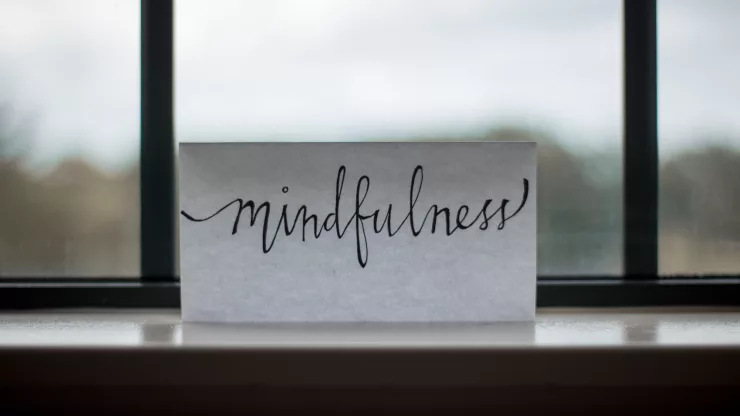Body image issues are a common struggle for many people. Negative thoughts and feelings about our bodies can have a significant impact on our mental health and overall well-being.
Fortunately, there are strategies that can be implemented to address these issues and promote a positive body image.
In this article, we will explore the relationship between body image and mental health, common body image issues, and strategies for addressing and promoting a positive body image.
Jump to Section
Understanding the Impact of Body Image on Mental Health
Body image refers to how we perceive and feel about our bodies, including our size, shape, and appearance.
Negative body image can have a significant impact on mental health, including self-esteem and mood.
A negative body image can lead to feelings of shame, guilt, and embarrassment, which can ultimately lead to anxiety and depression.
The Relationship Between Body Image and Self-Esteem
Body image and self-esteem are closely linked. A negative body image can lead to low self-esteem, which can contribute to feelings of inadequacy and worthlessness.
On the other hand, a positive body image can lead to improved self-esteem and confidence.
The Link Between Negative Body Image and Mental Health Disorders
Negative body image can also contribute to the development of mental health disorders such as anxiety and depression.
Individuals with a negative body image may experience intense feelings of anxiety related to their appearance, leading to social isolation and avoidance.
In severe cases, negative body image can lead to the development of eating disorders such as anorexia, bulimia, and binge eating disorder.
How Media Influences Our Perception of Body Image
The media plays a significant role in shaping our perception of body image. Images in the media often depict unrealistic and unattainable beauty standards, leading to feelings of inadequacy and low self-esteem. Social media platforms can also contribute to the development of negative body image, as individuals are constantly exposed to images and messages that promote unrealistic beauty standards.
Common Body Image Issues and How to Identify Them
Body Dysmorphic Disorder: Symptoms and Warning Signs
Body dysmorphic disorder (BDD) is a mental health disorder characterized by an obsessive preoccupation with perceived flaws in one’s appearance. Symptoms of BDD may include spending hours each day checking and obsessing over one’s appearance, frequently seeking reassurance from others about one’s appearance, and avoiding social situations due to feelings of shame and embarrassment.
Eating Disorders: Anorexia, Bulimia, Binge Eating
Eating disorders such as anorexia, bulimia, and binge eating disorder can also contribute to negative body image. These disorders are characterized by disordered eating patterns and can lead to significant physical and mental health consequences.
Body Shaming and Its Effects on Mental Health
Body shaming refers to the act of criticizing or mocking someone’s appearance. This can have significant negative effects on mental health, including increased feelings of shame, guilt, and low self-esteem.
Strategies for Addressing Body Image Issues
Therapy and Counseling: Finding the Right Professional
Therapy and counseling can be effective strategies for addressing body image issues. Finding the right professional is important, as different therapists may use different therapeutic approaches.
It is important to find a therapist who is experienced in treating body image issues and who you feel comfortable opening up to.
Cognitive Behavioral Therapy (CBT) and Its Effectiveness for Body Image Issues
Cognitive-behavioral therapy (CBT) is a type of therapy that focuses on challenging negative thought patterns and behaviors. CBT can be an effective strategy for addressing body image issues, as it can help individuals identify and challenge negative thoughts related to their appearance.
Mindfulness-Based Stress Reduction (MBSR) Techniques for Coping with Negative Body Image
Mindfulness-based stress reduction (MBSR) techniques can also be effective for coping with negative body image. These techniques focus on developing mindfulness skills and can help individuals become more aware of their thoughts and feelings related to their appearance.
Steps to Positive Body Image: How to Love Your Body
There are steps that individuals can take to promote a positive body image. These steps include practicing self-care, engaging in positive self-talk, and challenging negative thoughts related to appearance.
- Practice self-care: Engage in activities that make you feel good about yourself and your body, such as taking a relaxing bath or getting a massage.
- Engage in positive self-talk: Challenge negative thoughts related to your appearance by focusing on positive aspects of your body.
- Challenge negative thoughts related to appearance: Identify negative thoughts related to your appearance and challenge them with evidence that contradicts them.
How to Promote Positive Body Image and Mental Wellness in Everyday Life
Healthy Habits for a Positive Body Image
There are healthy habits that individuals can develop to promote a positive body image. These habits include eating a balanced diet, engaging in regular exercise, and getting enough sleep.
| Healthy Habits for a Positive Body Image |
|---|
| Eating a balanced diet |
| Engaging in regular exercise |
| Getting enough sleep |
The Role of Exercise in Promoting Positive Body Image and Mental Wellness
Exercise can also play a significant role in promoting positive body image and mental wellness. Regular exercise can lead to improved mood, increased self-esteem, and a more positive body image.
The Benefits of Self-Care for Mental Health and Body Image
Engaging in self-care activities can also promote positive body image and mental wellness. Self-care activities can help to reduce stress and anxiety, leading to improved mental health and a more positive body image.
Embracing Your Unique Body: Encouraging Self-Love and Acceptance
Embracing your unique body is an important step towards promoting a positive body image and mental wellness. Learning to love and accept your body can be challenging, but it is an important part of promoting overall well-being.
Seeking Support: Resources for Mental Health and Body Image Issues
There are a variety of resources available for individuals struggling with body image and mental health issues. These resources include support groups, therapy and counseling services, and online resources.
The Importance of Prioritizing Mental Wellness in Your Life
Prioritizing mental wellness is essential for overall well-being. Taking care of your mental health can help to reduce stress, increase self-esteem, and promote positive body image.
FAQ
What is body image?
Body image refers to how we perceive and feel about our bodies, including our size, shape, and appearance.
How can negative body image affect mental health?
Negative body image can lead to feelings of shame, guilt, and embarrassment, which can ultimately lead to anxiety and depression.
What are some strategies for addressing body image issues?
Strategies for addressing body image issues include therapy and counseling, cognitive-behavioral therapy (CBT), mindfulness-based stress reduction (MBSR) techniques, and steps to promote positive body image.
What resources are available for individuals struggling with body image and mental health issues?
Resources for individuals struggling with body image and mental health issues include support groups, therapy and counseling services, and online resources.

With a deep passion for personal development, Ben has dedicated his career to inspiring and guiding others on their journey towards self-improvement.
His love for learning and sharing knowledge about personal growth strategies, mindfulness, and goal-setting principles has led him to create My Virtual Life Coach.
Contact Ben at [email protected] for assistance.




